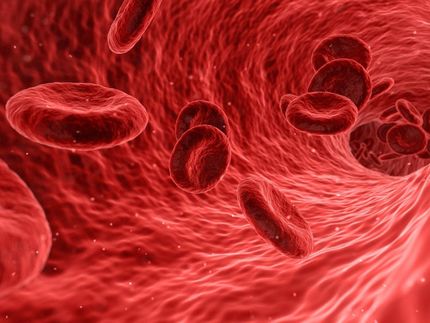Unmasking Hidden Potential: LMO4 Enhances T Cell Cancer-Fighting Abilities
Researchers have engineered CD8+ T cells to artificially express the gene LMO4, thereby enhancing their effectiveness against tumors.
T cell therapies, which use genetically engineered T cells of the human immune system as therapeutics, are revolutionizing medical oncology by effectively treating previously incurable blood cancers. However, their success against solid tumors has been limited. How can we make these therapies more effective against a wider range of cancers? Recent studies have shown that stem-like memory T cells, a special type of T cell known for its longevity and ability to proliferate, are key to fighting tumors successfully.

Switching on LMO4 in T cells, unveils its hidden therapeutic potential
Dr. Roland Schelker / LIT
Researchers in the Division of Functional Immune Cell Modulation (LIT), Internal Medicine III (UKR), and the Laboratory of Molecular Immunology, Immunology Center (NHLBI) are developing new methods to enhance the generation of these powerful T cells. Through CRISPR activation screen —a method scientists use to activate many different genes in cells to see which ones have specific effects— the team discovered that the gene LMO4 can boost the stem-like qualities of T cells making them more effective against cancer. By employing synthetic biology tools to introduce LMO4 into cancer-fighting T cells, they found that these modified T cells expanded more, lived longer, and resisted aging. “When we increased LMO4 in T cells, we found that these cells remain in a more 'stem-like' state, allowing them to survive longer and fight cancer more effectively,” explains Roland C. Schelker, a lead researcher.
How does LMO4 work its magic?
The key is a signaling pathway involving a molecule called IL-21 and a protein called STAT3. When IL-21 binds to its receptor on the T cell surface, it triggers a series of reactions that activate STAT3. This protein then moves into the T cell's nucleus and switches on specific genes that help the cell grow, survive, and become a memory cell that can better recognize and attack cancer cells. The scientists found that LMO4 binds to a protein called JAK1, which associates with the IL-21 receptor. This binding stabilizes the receptor and improves its ability to send signals into the T cell.
It’s known that IL-21-STAT3 signaling can promote the creation of long-lasting memory T cells. Previously, the researchers found that treating cells with the combination of IL-21 and an inhibitor of a metabolic enzyme (lactate dehydrogenase) substantially improved anti-tumor efficacy. The current study shows that this combination results in robust expression of LMO4 and that LMO4 can be harnessed to boost STAT3 signaling directly within the antitumor cells. “We found that LMO4 markedly enhances the antitumor efficacy of T cells,” says Warren J. Leonard, M.D., co-senior author of the study and an NIH distinguished investigator in the Laboratory of Molecular Immunology at NHLBI. “Our study also more broadly suggests that driving expression of molecules such as LMO4 that confer distinctive properties may represent a valuable addition to other immunotherapeutic approaches for targeting tumors.”
Shedding light on hidden genes
A fascinating aspect of this research is that LMO4 typically has limited function in T cells. By artificially introducing it into T cells, the researchers have "turned on the light" to reveal its hidden potential (cartoon below). “This is one of the best examples of how overexpressing a gene – LMO4 – that is not usually active in T cells can promote beneficial traits and enhance their therapeutic function”, says Luca Gattinoni, the senior author of the study. “Our findings open up new possibilities for manipulating other genes usually silenced in T cells, that could potentially induce desired functions in T cells,” he continues.
What Are the Next Steps?
Looking ahead, the researchers are planning to use these findings to develop new T cell therapies that not only boost LMO4 levels but also enhance the overall signaling pathway involved. The goal is to create more robust and long-lasting treatments that can tackle solid tumors more effectively, offering new hope for better outcomes in cancer therapy.
Original publication
Roland C. Schelker, Jessica Fioravanti, Fabio Mastrogiovanni, Jeremy G. Baldwin, Nisha Rana, Peng Li, Ping Chen, Timea Vadász, Rosanne Spolski, Christoph Heuser-Loy, Dragana Slavkovic-Lukic, Pedro Noronha, et al.; "LIM-domain-only 4 (LMO4) enhances CD8+ T-cell stemness and tumor rejection by boosting IL-21-STAT3 signaling"; Signal Transduction and Targeted Therapy, Volume 9, 2024-8-9






















































